Coronavirus on the Latin Bridge
Was that the sound of a gunshot?
| Azeem Azhar | Mar 1 |
This is a members-only post which I am making freely available.
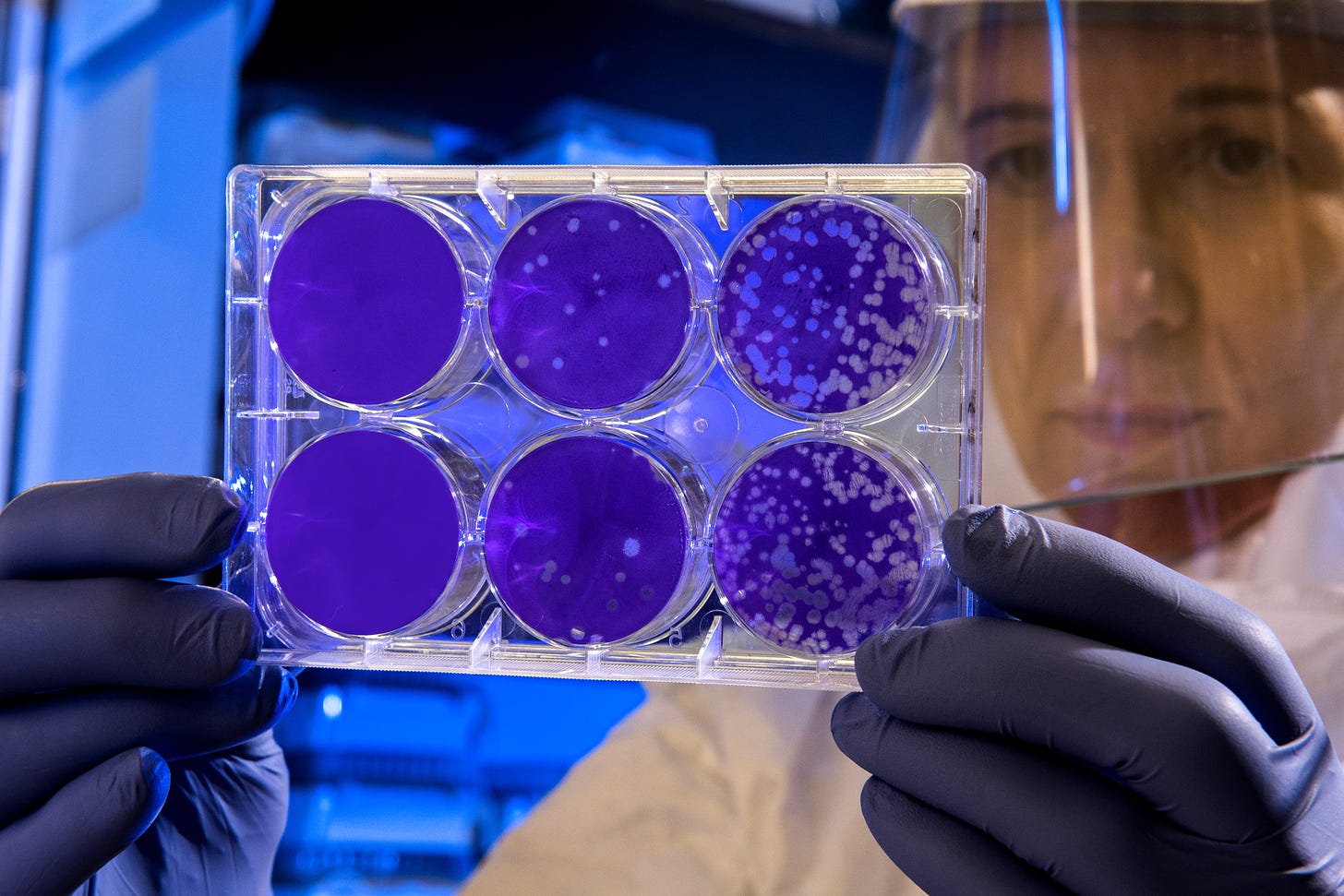 I’m
not getting all Heaven’s-Gatey when I suggest that the new coronavirus
(SARS-CoV-2) could have a catalytic effect on the transition to the
exponential age. It throws into relief so many of the current issues of
our modern geopolitical and economic arrangements.
I’m
not getting all Heaven’s-Gatey when I suggest that the new coronavirus
(SARS-CoV-2) could have a catalytic effect on the transition to the
exponential age. It throws into relief so many of the current issues of
our modern geopolitical and economic arrangements.
The world was already a tense, wound-up place. Trust in institutions, especially government, was at historically low levels. Political discontent, which has many parents, was rising in richer and poorer nations. The questions about whether our governments work for us or for the few was being asked in different ways across the world.
We were managing this shift under that looming threat of climate change. This made planning for change harder than ever. We couldn’t just throw more consumption at the problem and hope more panem et circenses could buy off the huddled masses.
Now to this hugely complex moment of change, we have an exogenous shock. A massive, tiny bundle of protein, the troublesome 120nm-diameter spiky virus. In its shell, is a wound-up pair of DNA strands, carrying just eight kilobytes of genetic code. It begins:
Germs have changed the course of history in the past. Zoonotic transplants from crowded European towns, where humans lived cheek-by-jowl with their animals, were a powerful ally to the Spanish during the genocidal colonisation of South America.
Writing this week in the New England Journal of Medicine, Bill Gates calls Cov19 a “once-in-a-century” pandemic. (Buzzfeed is keeping a useful data feed on spread and cases worldwide.)
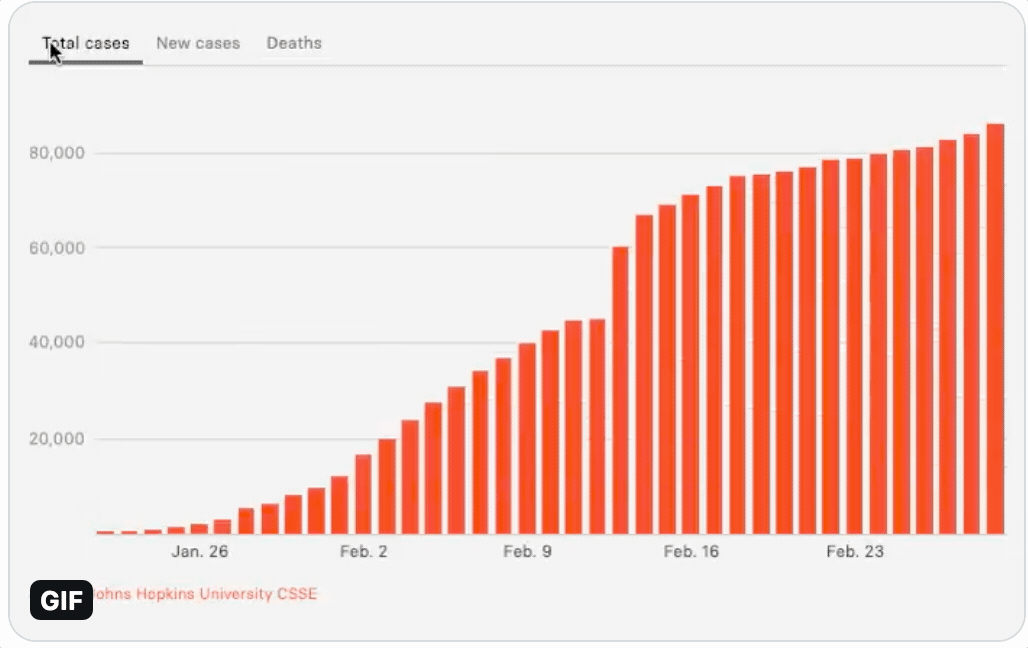 The Economist is even-handed in its (gruesome) assessment, which is a recommended read.
The Economist is even-handed in its (gruesome) assessment, which is a recommended read.
I think quite possible. Last month I argued the coronavirus might change our world in several ways: take a look here.
I identified six major trends. They have held up well, in fact, widely corroborated by the past three weeks. The summary is below.
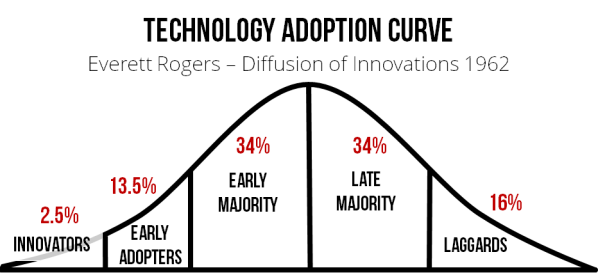
Most of us alive are not innovators. Although, a disproportionate number of you reading this will be.
So the bulk of our peers don’t need to experiment or feel they can ask the question, “could this be done differently”. Or perhaps they can ask the question but aren’t heard. As the governments take steps to mitigate the spread of the virus, all of us, even the most laggardiste, will be forced to adapt. We are all becoming early adopters.
A shock like the steps being taken to slow down the spread of the coronavirus, and the impact a rapid growth of infections could have on a health system, will force us to adapt. Here are some interesting questions. I’d welcome your questions and comments below.
How will the culture of travelling to work or school change? How will adapt to remote working and learning? Will we change our behaviours to support more asynchronous, distributed work patterns?
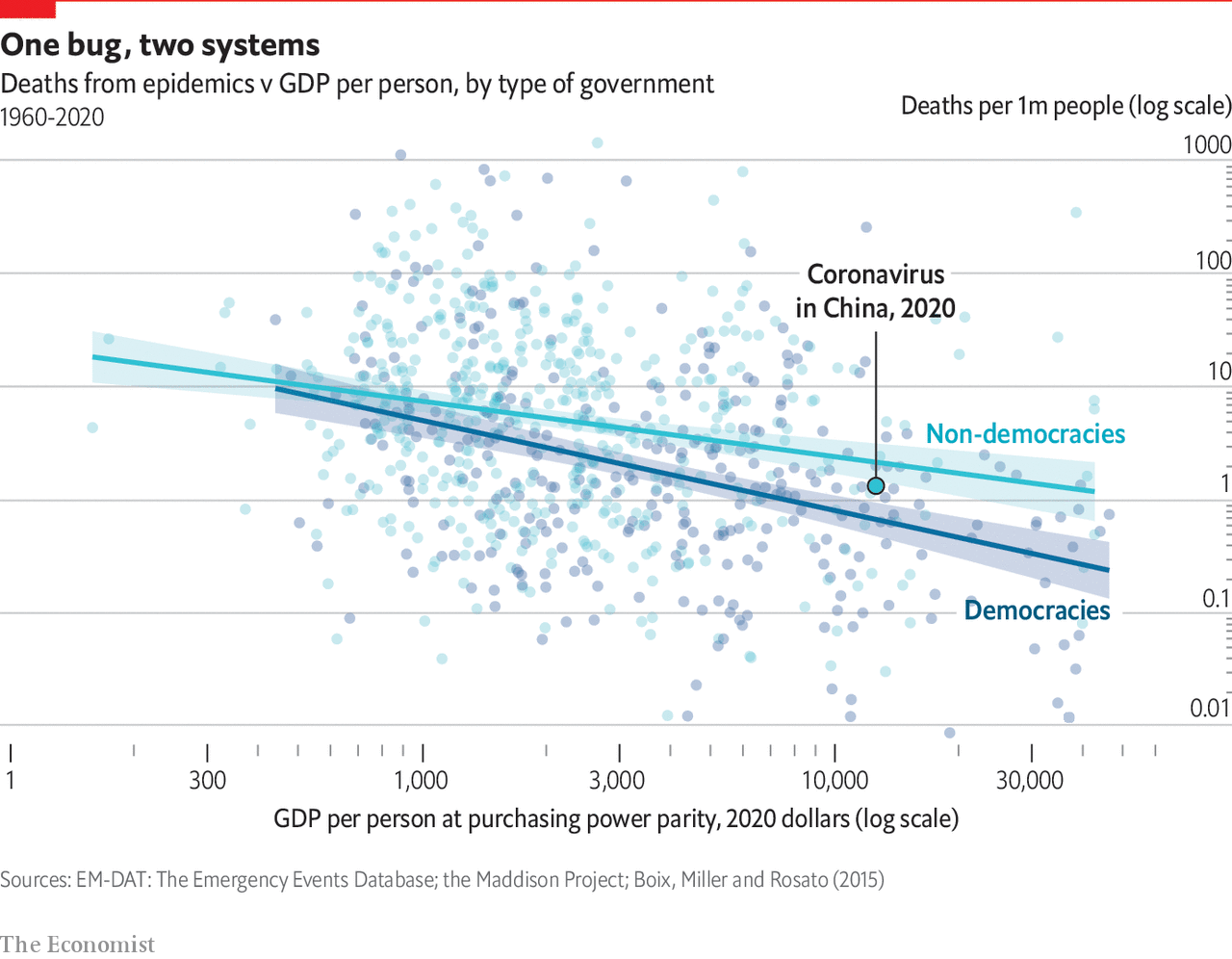
P.P.P.S. EV reader, Nicolas Granatino, is producing a daily COVID-19 update which you can get here.
 I’m
not getting all Heaven’s-Gatey when I suggest that the new coronavirus
(SARS-CoV-2) could have a catalytic effect on the transition to the
exponential age. It throws into relief so many of the current issues of
our modern geopolitical and economic arrangements.
I’m
not getting all Heaven’s-Gatey when I suggest that the new coronavirus
(SARS-CoV-2) could have a catalytic effect on the transition to the
exponential age. It throws into relief so many of the current issues of
our modern geopolitical and economic arrangements. The world was already a tense, wound-up place. Trust in institutions, especially government, was at historically low levels. Political discontent, which has many parents, was rising in richer and poorer nations. The questions about whether our governments work for us or for the few was being asked in different ways across the world.
Until the end of February I am offering a 15% discount to annual memberships of Exponential View, this newsletter. Click the big red button below to sign-up.We were managing this shift under that looming threat of climate change. This made planning for change harder than ever. We couldn’t just throw more consumption at the problem and hope more panem et circenses could buy off the huddled masses.
Now to this hugely complex moment of change, we have an exogenous shock. A massive, tiny bundle of protein, the troublesome 120nm-diameter spiky virus. In its shell, is a wound-up pair of DNA strands, carrying just eight kilobytes of genetic code. It begins:
🎧 You can listen to the first 4,000 bases being read out by a text-to-speech synthesizer here. (Sorry, I could only find a TTS system that let me read 4,000 characters.)attaaaggtt tataccttcc caggtaacaa accaaccaac
Germs have changed the course of history in the past. Zoonotic transplants from crowded European towns, where humans lived cheek-by-jowl with their animals, were a powerful ally to the Spanish during the genocidal colonisation of South America.
Writing this week in the New England Journal of Medicine, Bill Gates calls Cov19 a “once-in-a-century” pandemic. (Buzzfeed is keeping a useful data feed on spread and cases worldwide.)
 The Economist is even-handed in its (gruesome) assessment, which is a recommended read.
The Economist is even-handed in its (gruesome) assessment, which is a recommended read. Officials will have to act when they do not have all the facts, because much about the virus is unknown. A broad guess is that 25-70% of the population of any infected country may catch the disease. China’s experience suggests that, of the cases that are detected, roughly 80% will be mild, 15% will need treatment in hospital and 5% will require intensive care. Experts say that the virus may be five to ten times as lethal as seasonal flu, which, with a fatality rate of 0.1%, kills 60,000 Americans in a bad year. Across the world, the death toll could be in the millions.Might it catalyse some rapid systemic changes, force us into adapting rapidly and doing new things?
I think quite possible. Last month I argued the coronavirus might change our world in several ways: take a look here.
I identified six major trends. They have held up well, in fact, widely corroborated by the past three weeks. The summary is below.
- Reinforce the power of scientific collaboration and the open-sourcing of global threats.
- Digital quarantines through better information and social credit systems.
- One of my friends has been stuck in his apartment in Shenzhen (with three young kids) for close to three weeks. He tells me that his phone-and-QR-code is becoming something of a second ID card for him.
- EV reader, Dev Patel, describes in great detail about how the process is unfolding through this translation of a lecture on the use of big data to fight the SARS-CoV-2 epidemic in China.
- Reinforce the importance of genomic technologies.
- We’re able to use rapid sequencing techniques to start to understand the epidemiological characteristics of this outbreak, by tracking genetic drift.
- This data suggests that the virus may have been present (but unnoticed) in the US for a few weeks.
- -
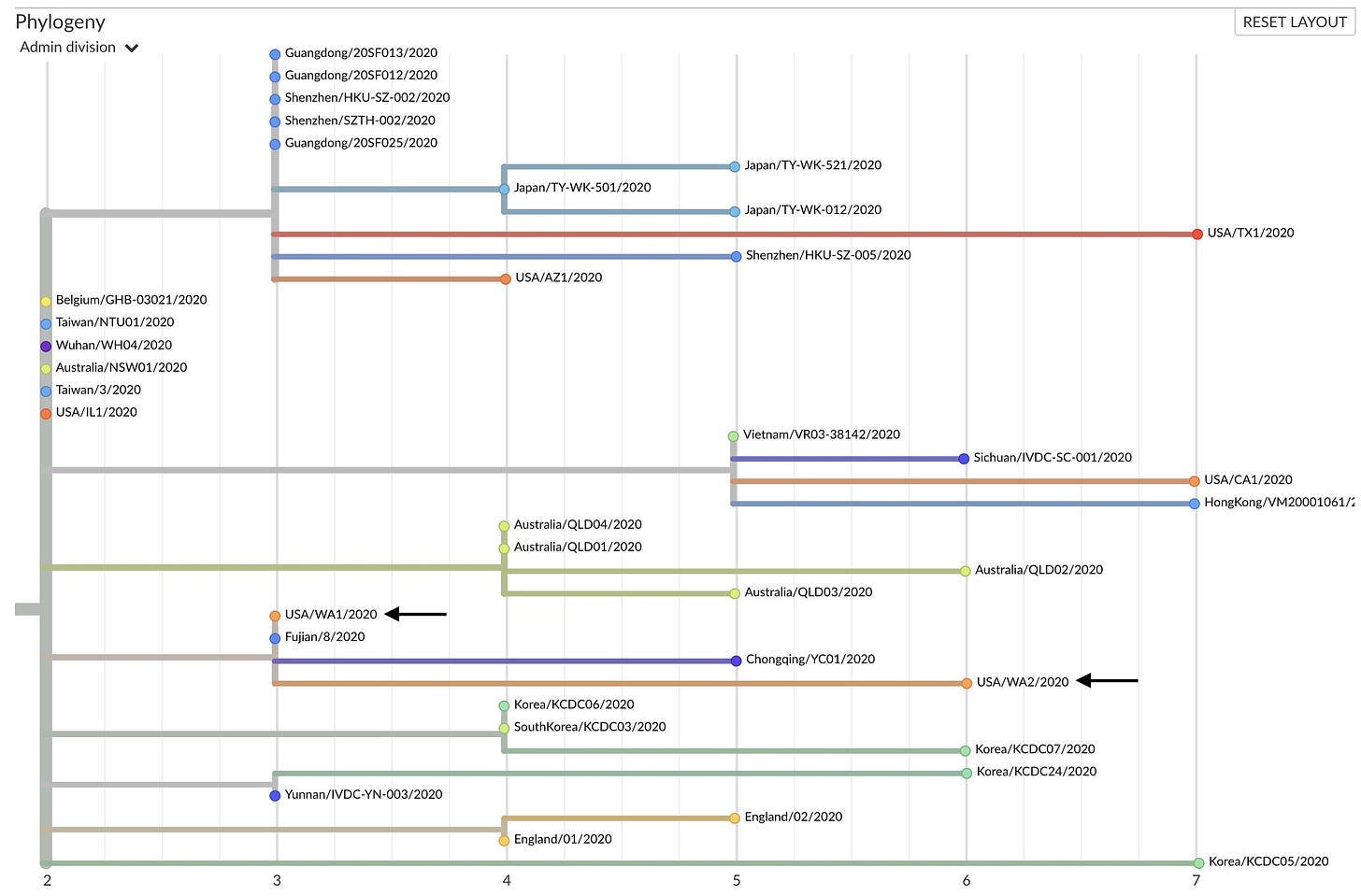
- Remote everything - we’ll travel less.
- Zoom, the video conferencing firm, has added 2.22 million monthly active users in 2020, compared to 1.99 million in all of 2019. To support my calls with people in China, I added a Chinese +86 dial-in number to my Zoom account. This cost £100 a month. (Zoom stock is up nearly 50 per cent in the past three months.)
- -
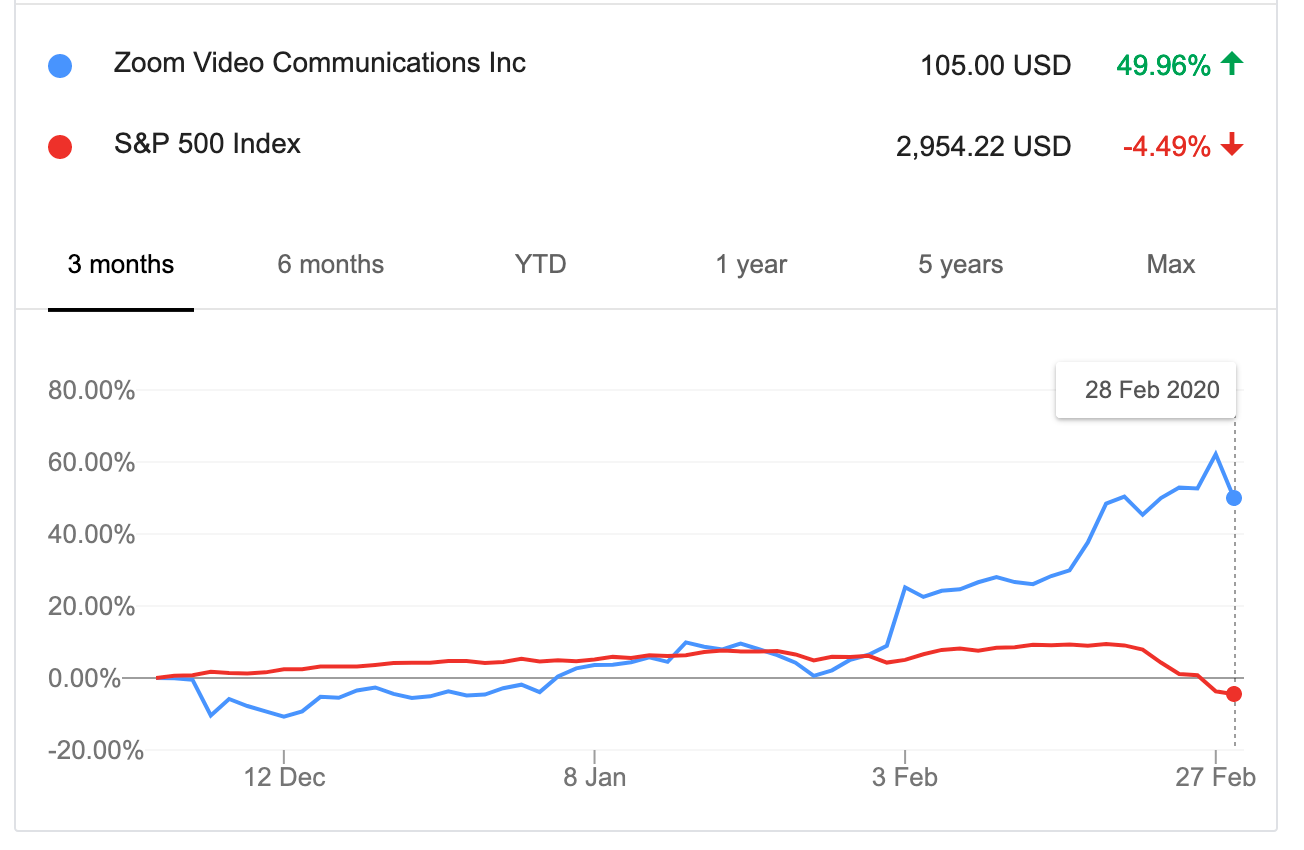
- The SARS crisis in 2002 is credited with helping to launch China’s e-commerce industry, and so far the Chinese tech industry appears to be benefiting from SARS-CoV-2 as well—even if they too have to work from home).
- My friend, Max Niederhofer, reckons that the speculation around the virus is “eviscerating the travel industry.” Just taking China and Italy out of the global travel portfolio would knock 15 per cent off the industry this year.
- Encourage self-sufficiency especially around food, energy and products.
- 60 per cent of North American manufacturers
are already being impacted by the coronavirus outbreak, and 34 per cent
expect their business to decline as a result. A fifth of the companies
surveyed have production facilities in China. For many, the biggest
worry is uncertainty about how the outbreak will unfold or how long it
will last, which makes it difficult for them to plan future business
decisions.
SARS-CoV-2 has led to a new record for the total amount of global inactive container tonnage. This is partially due to the growth of shipping fleets—8.8 per cent of the global fleet is idle today, compared to 11.7 per cent in 2009 during the financial crisis. The impact will be felt around the world in the coming months as it translates into major supply shortages.
China’s carbon emissions have dropped by almost a quarter over the past two weeks as a result of measures to contain the coronavirus. NO2 air pollution over China is down 36 per cent on the same period last year, and domestic flights have plummeted by 70 per cent. The key question is whether the reduction will be sustained, or if it will be wiped out in the recovery process as the Chinese economy grinds back into gear.
China’s PMI has collapsed to new lows.
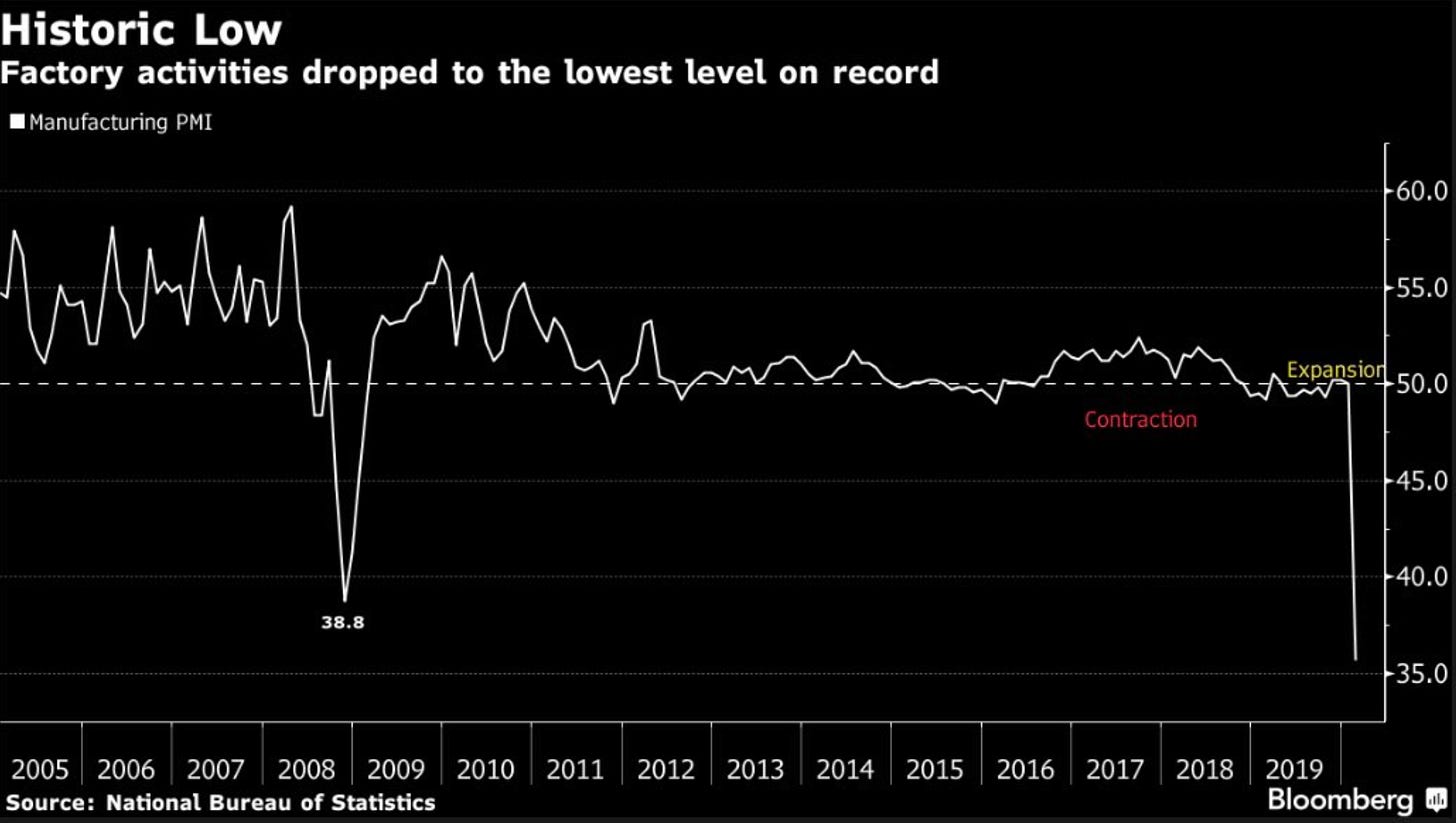 Airborne NO2 output has collapsed across China. Air quality is up, economic activity down.
Airborne NO2 output has collapsed across China. Air quality is up, economic activity down.
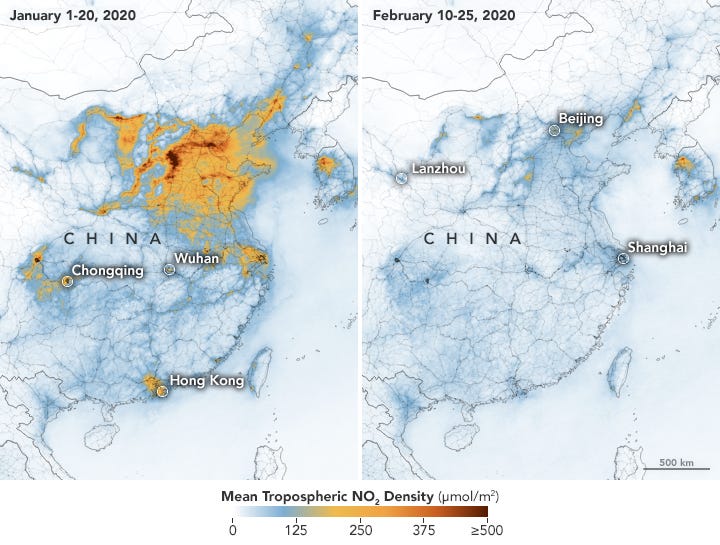
The economic costs of SARS-CoV-2 will be enormous. Chinese growth is forecast to fall to 3.5 per cent, and stock markets around the world are tumbling as the scale of the crisis becomes clear. The impact on global supply chains is likely to reverberate for months.
- 60 per cent of North American manufacturers
are already being impacted by the coronavirus outbreak, and 34 per cent
expect their business to decline as a result. A fifth of the companies
surveyed have production facilities in China. For many, the biggest
worry is uncertainty about how the outbreak will unfold or how long it
will last, which makes it difficult for them to plan future business
decisions.
- Lend support to the nativists, populists, statists and wall-builders.
There is a huge experiment going on, what might we learn?
The thing is, most of us don’t readily question the status quo.
Most of us alive are not innovators. Although, a disproportionate number of you reading this will be.
So the bulk of our peers don’t need to experiment or feel they can ask the question, “could this be done differently”. Or perhaps they can ask the question but aren’t heard. As the governments take steps to mitigate the spread of the virus, all of us, even the most laggardiste, will be forced to adapt. We are all becoming early adopters.
A shock like the steps being taken to slow down the spread of the coronavirus, and the impact a rapid growth of infections could have on a health system, will force us to adapt. Here are some interesting questions. I’d welcome your questions and comments below.
How will the culture of travelling to work or school change? How will adapt to remote working and learning? Will we change our behaviours to support more asynchronous, distributed work patterns?
- I’ve had four overseas meetings cancelled. We’ve made do with video-conferencing. I’ve had less jet lag. Dozens of conferences are being cancelled and going online-only, including a massive one from Salesforce. Amazon cancelled “non-essential travel” for 798,000 employees. Now, if these firms survive without the huge costs of in-person conferences and “non-essential travel”, will they rush to reinstitute them once we have this almost-pandemic under control?
- My buddy in Shenzhen has a primary-school-age daughter. She has been attending classes delivered by Zoom video conferences. Does this create a moment to innovate around teaching techniques (learn by YouTube, discuss by video conference, for example)?
- Will one consequence of work-from-home be felt by parents, in particular mothers, who may find these arrangements (work anywhere, anywhen) better allow them to participate?
- How will isolation measures impact gig workers and low-wage workers on zero-hours contracts? White-collar, salaried professionals, like lawyers and developers, can work remotely with aplomb. Not showing up to the office doesn’t mean not getting paid. Not so for a Deliveroo driver or hotel cleaner. If large parts of the economy are effectively furloughed for months at a time, how will we respond?
- Reshoring was already growing. Firms were bringing manufacturing closer to home. Initially, this pattern started to emerge because the rising living standard in China was eliminating the cost advantage of overseas manufacturing. Greater automation meant local production, even in high-cost markets, did not carry as much of a premium as offshore.
- It was a trend identified five-years ago by BCG:
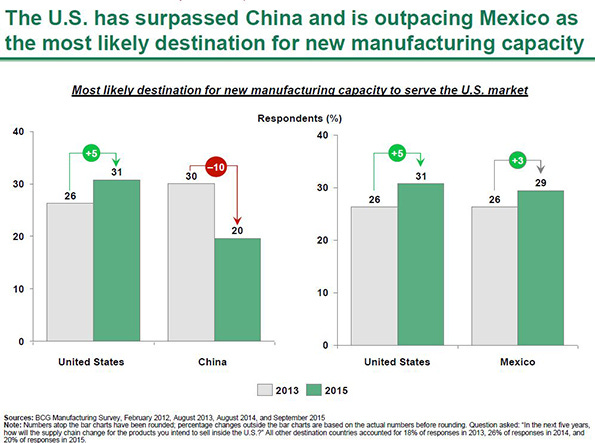
- Recently, geopolitical imperatives, particularly around data sovereignty, have seen more localised manufacturing. Take, for example, Apple’s production of Indian iPhones takes place locally, albeit in a Foxconn factory.
- “Without open media and an opposition to check on bureaucratic hierarchy, knowledge from the front lines of the 2019-nCoV outbreak did not reach Beijing,” argues Matthew Kavanagh in The Lancet. “Weeks into the outbreak, leaders were forced to publicly threaten that officials withholding information “will be nailed on the pillar of shame for eternity”.”
- Zeynep Tufekci’s excellent piece in The Atlantic outlines just how China’s massive censorship and surveillance system may have left them blind to the danger in the early days of the coronavirus outbreak.
- The Iranian authorities seem particularly ill-prepared. (See this video of a shopping mall in Iran and follow Twitter user, @aliostad, who is keeping track of the outbreak in Iran. It isn’t going well.)

- Democracies “recognize that public health fundamentally depends on public trust”, says Ariana Berengaut. But public trust is at government and politics is at low levels.
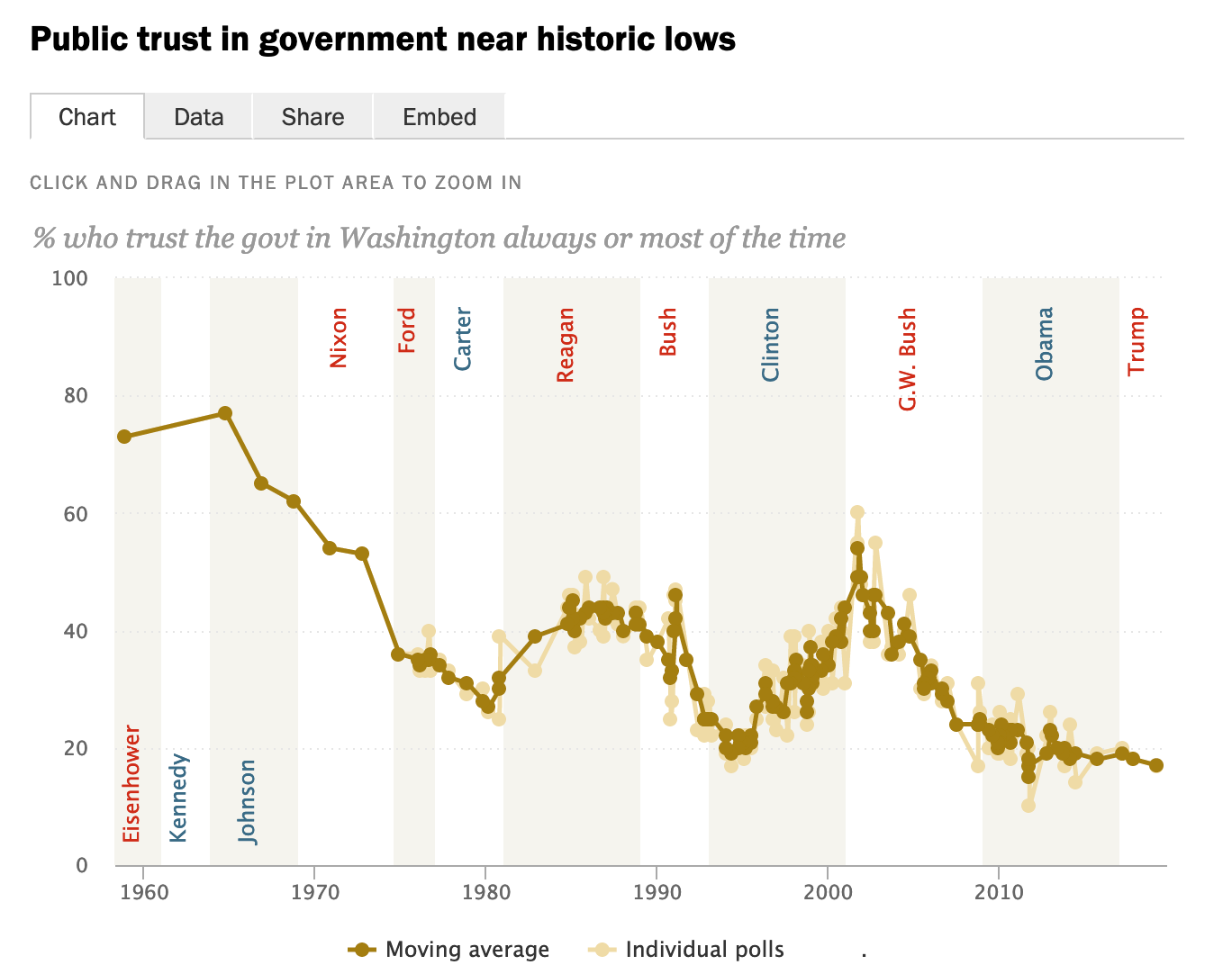
And in some case, like the current British government, fought its electoral campaign with explicit attacks on the mechanisms of the state that stand outside politics, such as the judiciary and the Civil Service. At a moment when trust is most needed, to manage this burgeoning public health crisis, the government has been involved in a vicious attack on the very institutions that engender that trust. - Says
Bergengaut: “the very advantages that a democracy has in a public-health
emergency are also those under greatest threat today from Trump and
like-minded populists and nationalists around the world. In the United
States, Trump has eviscerated traditional sources of public trust and
trampled on almost every form of international cooperation. He drove away science-policy advisers, dismantled the White House office tasked with preventing pandemics, and ousted its well-respected chief.”
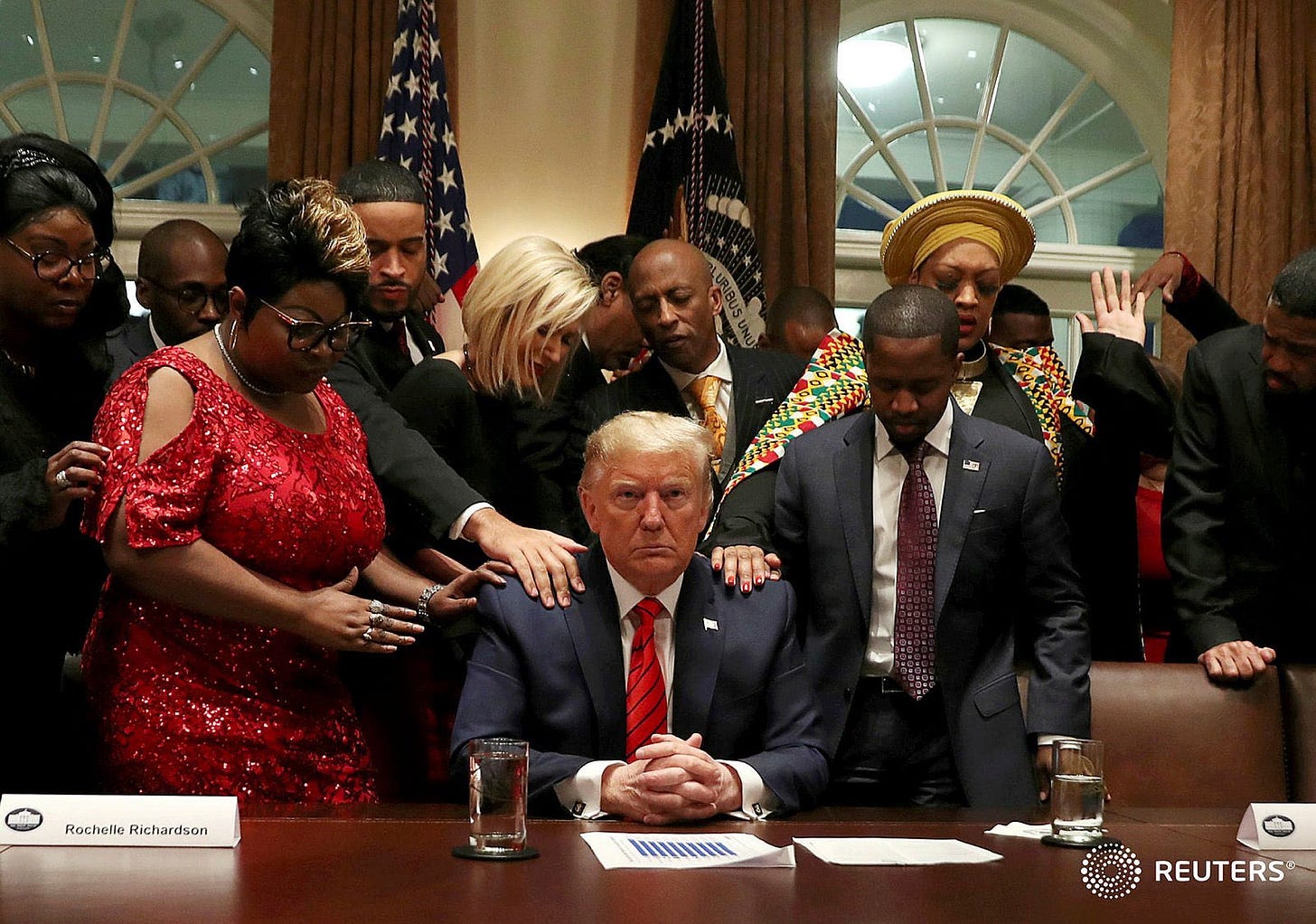
- There are similar issues in the United States which has denuded the capacities of its state in every way except war-fighting (and yes, they just de facto admitted to losing the war against the Taliban even after bombing Afghanistan into the ‘stone age’.) Take this story of a Reddit user who tried to get a SARS-CoV-2 test — but failed despite running a fever and having returned from Japan. America’s CDC wouldn’t sanction it.
Change was coming
Massive
system-wide change was coming well before anyone had heard of
SARS-CoV-2 or the disease caused by the virus, COVID-19. This is why I
started writing Exponential View nearly five years ago. The
complex system of our societies is emerging new structures and new
behaviours in ways we hadn’t witnessed for a hundred years.
We
now have an exogenous shock which shaking some of the assumptions of the
cosy model of the last forty years. I wouldn’t go as far as to say that
our response to coronavirus will cause widespread change. If it is
really lethal, it might. But rather, rendering our present tools and
systems vulnerable and useless, it is forcing us to adapt and invent so
quickly. Perhaps we’ll like those adaptations.
Comments are open for members and non-members. Feel free to share this or hit the heart above.
😎 Azeem
Until the end of February I am offering a 15% discount to annual memberships of Exponential View, this newsletter. Click the big red button below to sign-up.P.S. On how I am managing remote work
I
spent nearly 15 hours in video calls this week—directly as a result of
the cancelled trips because of the virus precautions. I was due to be in
Hong Kong this week. And a meeting in Berlin was cancelled. So too
forthcoming trips to Dubai and the US.
My Zoom account is working double time. I wanted to share a couple of my tips and tricks for working on Zoom.
I
tend to log-in twice, especially when I am presenting. One log-in is
from my primary desktop, an iMac. This has a camera. I prefer an
external Logitech camera to the built-Apple webcam. I use
noise-cancelling headphones.
I record my Zoom calls (with the participants’ permission) and send them to Otter for a rough transcription.
The
second log-in is from an iPad. This means that when I present, I can
also see how other attendees see my talk (including slides). When I am
not presenting, I take notes on this iPad in Bear.
I’ll
also have my iPhone running with WhatsApp and/or Signal for any
backchannel that is needed. I can also put notes into Bear on my iPhone
when I present. This syncs up with Bear on my iPad.
If I am
involved in a working session in Zoom, I’ve found live-editing
Powerpoint or Google Slides while taking feedback from other
participants can be very effective. Obviously, there are more
sophisticated collaboration solutions, like smart-boards, but I find
this set-up is effective in my home office (and, in a cut-down way, from
hotel rooms too.)
-
https://www.exponentialview.co/p/-coronavirus-on-the-latin-bridge?token=eyJ1c2VyX2lkIjoxMzMzNzY4LCJwb3N0X2lkIjoyOTY3MjcsIl8iOiJKZERsQSIsImlhdCI6MTU4MzA3ODU5OSwiZXhwIjoxNTgzMDgyMTk5LCJpc3MiOiJwdWItMjI1MiIsInN1YiI6InBvc3QtcmVhY3Rpb24ifQ.vCU7-QY-7Fu8tmb7jVlluEHJNNEAZlTyGi8jkcVdbHk&fbclid=IwAR00Dm3-jxObqVvSzPxgCpYkielps28pCiiKC4SIigGBUdWBYv8vm67jGfE
-
P.P.S. The Latin Bridge is a homily to the assassination of Archduke Ferdinand. If you have time, Simon Kuper was a beautiful essay about the event and the place. P.P.P.S. EV reader, Nicolas Granatino, is producing a daily COVID-19 update which you can get here.
No hay comentarios:
Publicar un comentario